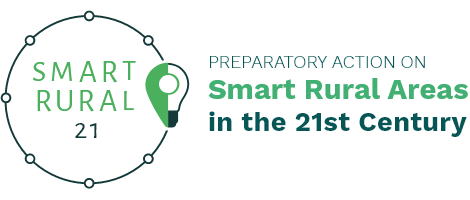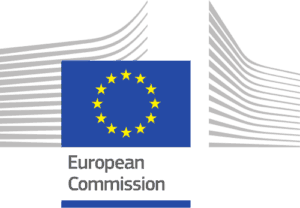Smart Café
Smart Rural Communities Cafés were organised for selected and Come Along! Smart Rural 21 villages. Each café was hosted by the representative(s) of a local community who talk about the community’s approach to ‘smart villages’, community engagement, inspiring initiatives and much more…
During the Smart Cafés village representatives could discuss informally ideas, approaches and questions that interest them in relation to specific theme(s) presented by the hosting village, over a coffee, tea or breakfast.

1st Smart Communities Café, Torup (Denmark), 19 November 2020
During the 1st Café, hosted by Torup (Denmark), Peter Plant was telling about their local democracy, voluntary work, community fund, how they engage community members through ‘Torup Ting’ and about their smart plans for the future.
2nd Smart Communities Café, Mouans-Sartoux (France), 8 January 2021
During the 2nd Smart Rural Communities’ Café, hosted by Mouans-Sartoux (France), Thibaud Lalanne was telling about about the way they built up 100% organic school canteens and municipal farms, as well as how the village has managed to design a resilient and ecosystemic food project based on a diversity of policies.
3rd Smart Communities Café, Raudanmaa (Finland), 3 February 2021
During the 3rd Smart Rural Communities’ Café, hosted by Raudanmaa (Finland), Heini Niklas-Salminen was talking about their village cooperative (including the optical fibre network), their smart village hall (multi-service centre) plans, as well as related community farm concept and village services (including innovative digital solutions).
4th Smart Communities Café, Penela (Portugal), 30 March 2021
During the 4th Smart Rural Communities’ Café, hosted by Penela (Portugal), Luis Matias was talking about how IoT technologies in goat-farming has contributed to leveraging territorial marketing and development as well as about their plans on how to develop the right methods and facilities for a healthy aging of elderly people in one of their small villages.
5th Smart Rural Café, Profondeville (Wallonia – Belgium), 23 June 2021
During the 5th Smart Rural Communities Café, Bernard Dubuisson from Profondeville tells about their plans to provide open data to help solve mobility problems and explain how they would like to bring new practices into public service provision around the management of data. He also explains how they provided broadband internet to a remote village at a very low cost and unveil how garbage trucks can help improve mobile coverage.
6th Smart Rural Café, Tomaszyn (Poland), 7 July 2021
During the 6th Smart Rural Communities Café, Piotr Ostaszewski from Tomaszyn talks about how regenerative agriculture and smart ecological production methods implemented in Ostoja Natury – their cooperative formed and settled in Tomaszyn – to become the driving force of change of their village. He explains how their BIO HUB – from farm to fork short chain distribution strategy – was carried out in Olsztynek, Warmia and Mazury Region.
7th Smart Rural Café, Ostana (Italy), 14 December 2021
Enrica Alberti, Laura Cantarella and Silvia Rovere talks about the regeneration process of Ostana from structural, social, cultural and sustainable points of view. A particular focus is put on contemporary approaches for future development such as cultural events, residence programme and sustainable mobility.
8th Smart Rural Café, Mukařov (Czechia), 3 February 2022
Kateřina Čadilová and Veronika Zemenova talk about the challenges and assets of being a suburban area of Prague, the village’s tailor-made website and communication system, the incentive waste management and the “MY WASTE” application, their community centre as the meeting point of all generations, what is smart in the age of “distant life“ and more…
Stanz im Mürztal, one of the Smart Rural 21 project selected villages, was chosen to receive additional expert support for the full implementation of its smart village strategy. Its project scope was to define the role of blockchain for leveraging the output of renewable energy resources and to combine technical and social innovation. The project goal was to define possible cases for the use of a local digital currency based on renewable energy.
As a first step, a renewable energy community was implemented in Stanz. Citizen engagement and an intense participation process provided the ideal basis for the token economic analysis. The Smart Café showcased the results of the Stanz feasibility study.

